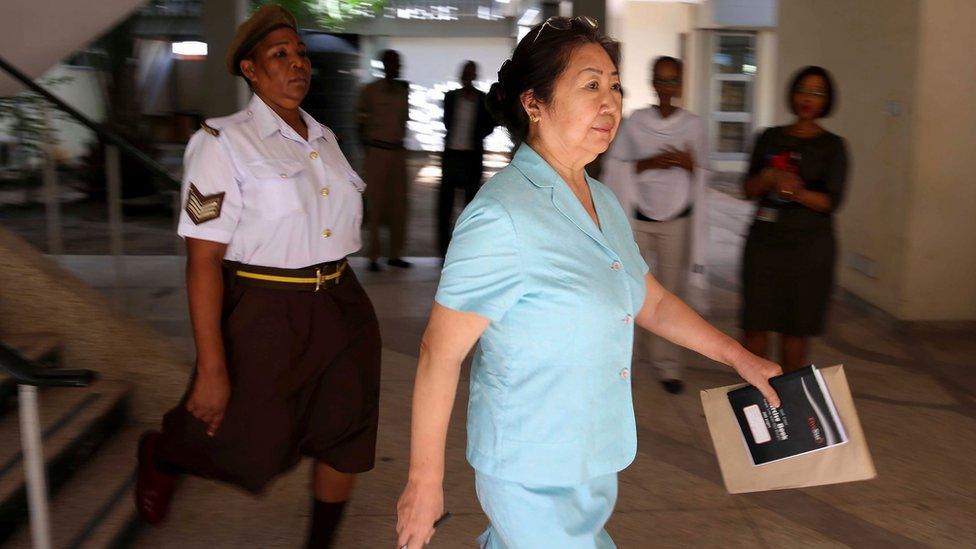Chinese 'Ivory Queen' Yang Fenglan jailed in Tanzania
- Published

Yang Fenglan was a leading figure in business circles at the time of her arrest
Tanzania has sentenced Yang Fenglan, a Chinese businesswoman nicknamed the "Ivory Queen", to 15 years in jail for smuggling hundreds of elephant tusks.
Yang was accused of operating one of Africa's biggest ivory-smuggling rings, responsible for smuggling $2.5m (拢1.9m) worth of tusks from some 400 elephants.
Two Tanzanian men were also found guilty of involvement in the ring.
Ivory poaching is said to have caused a 20% decline in the population of African elephants in the last decade.
The International Union for Conservation of Nature (IUCN), a global environmental body, says the population of African elephants has fallen to 415,000 - a drop of 110,000 over the last 10 years - as a result of poaching.
The illicit trade is fuelled by demand from China and east Asia, where ivory is used to make jewellery and ornaments.
Yang was convicted on charges relating to the smuggling of around 800 pieces of ivory between 2000 and 2014 from Tanzania to the Far East.
The Tanzanian men were also jailed for 15 years on similar charges.
The court in Dar es Salaam, Tanzania's main city, has ordered Yang's property to be repossessed.
She had been under investigation for more than a year when she was arrested in 2015, following a high-speed car chase.
At the time of her arrest, Yang was a prominent businesswoman, operating a Chinese restaurant as well as an investment company in Dar es Salaam.
Fluent in Swahili, she had lived and worked in Tanzania since the 1970s, and had served as vice-president of the China-Africa Business Council of Tanzania.
Environmental campaigners welcomed the arrest because she was seen as playing a pivotal role in the illegal ivory trade. Most arrests tend to involve minor players.
- Published9 May 2016
- Published31 August 2016
- Published28 April 2016